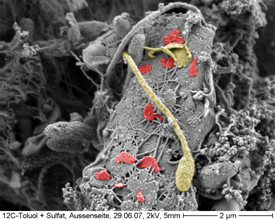CHAPTER
FIVE
DISCUSSION OF
FINDINGS, CONCLUSIONS, EDUCATIONAL IMPLICATIONS, RECOMMENDATIONS, LIMITATIONS
OF THE STUDY, SUGGESTIONS AND SUMMARY.
5.1
Discussion of findings
This chapter discusses issues that
follow from the preceding chapters, evaluating, respondent view from the data
obtained in this research work.
Implications limitations and
suggestion for further study are discussed.
Research Question 1
Sought to ascertain in what ways the lack of qualified and motivated
biology teachers are consequential to the teaching of the subject. The result
(table 2) obtained revealed that 98% of the respondents agree that the
inability of the teacher to explain the lessons very well is one of the
consequences of lack of qualified and motivated biology teachers, while 2%
disagree. 94% agree to inability to apply knowledge of biology in appropriate
area of life, while 6% disagree. 97% agree to students loss of interest in
biology, while 3% disagree. 94% agree to low practical knowledge of biology,
while 6% disagree. 95% agree to tiring owing to the volume and ambiguity, while
5% disagree.
Consequently, it is
observed that all the items in table 2 are the ways in which lack of qualified
and motivated biology teachers affect the teaching of biology. 98% of the
respondents agree while 5% disagree. This tallies with Agunyegon (1980). He
noted that there exists a relationship between teachers qualification and
students performance.
Research Question 2
aimed at finding out the extent of conformity of teaching method and
techniques in teaching biology in secondary schools with what is required. The
result in table 3 revealed that 96% agree that the teaching method and
techniques do not conform to what is required, while 4% disagree. 94% agree
that it is far from requirement, while 6% disagree. 35% agree that it connect
properly, while 65% disagree. 32% agree that it is appropriate while 68%
disagree. 97% agree that it is out of place, while 3% disagree.
From the available
record, it is evident that the method and techniques used in teaching biology
in secondary schools do not conform to what is required.
This corroborates with the
WAEC Acting HRDH officer’s report (2001,2002,2003,2005), which held that
failure in biology is due to non use of the necessary methods and techniques to
impact the knowledge by teaching in order to ensure that learning takes place.


